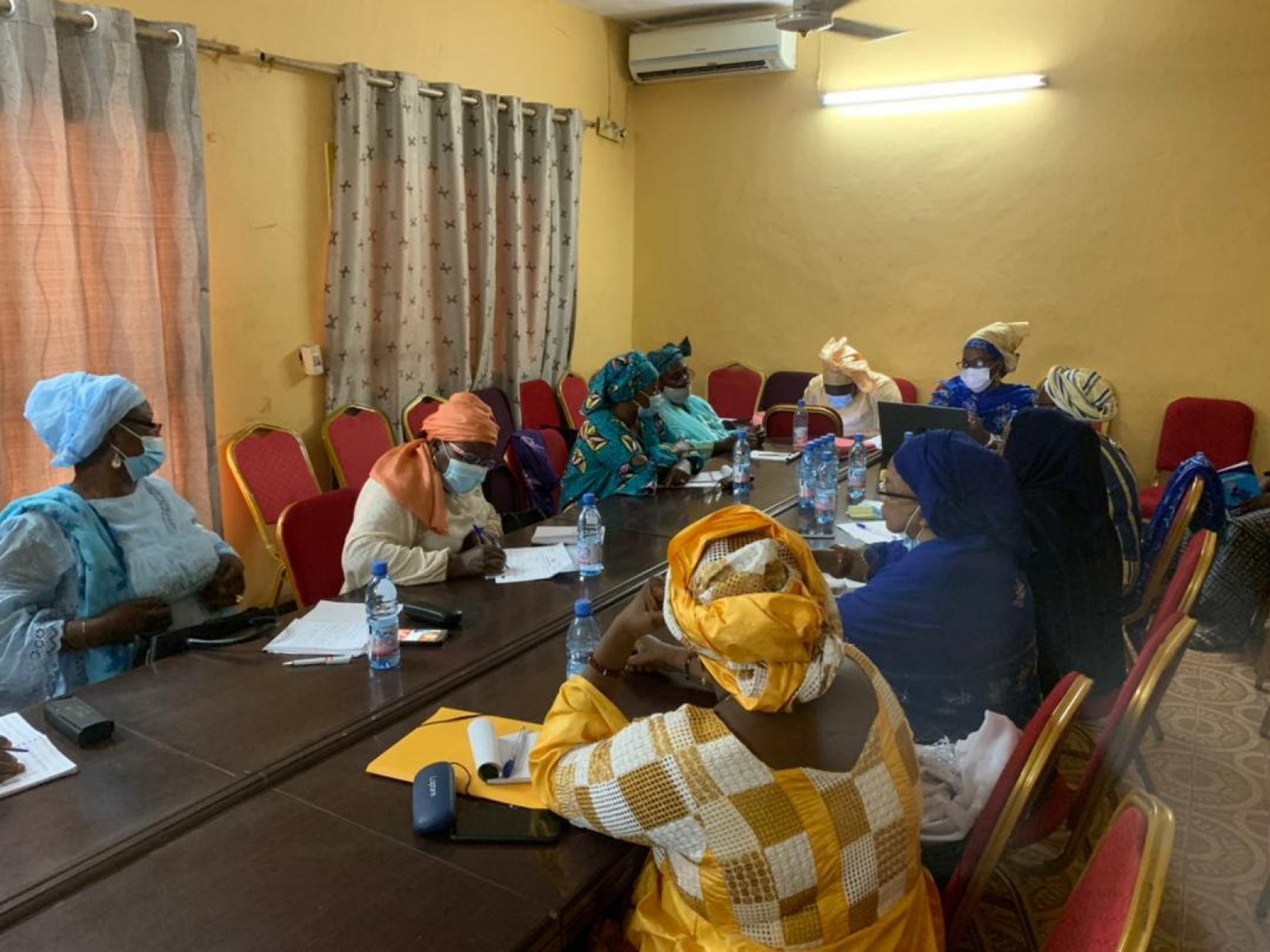
SHARE
ISSUES
In many countries, including Mali, the exclusion of women in politics persists despite legal structures that aim to increase their participation. At an exchange session led by NDI and its local partners, Network of African Women Ministers and Parliamentarians of Mali (REFAMP) and the Young Malian Women Political Party Leader’s Network (REJEFPO), women from Malian political parties in the Mopti region discussed obstacles that impede gender equality in politics. One participant shared, “We are afraid of being insulted, abused, and ashamed, or being uncomfortable in front of our in-laws, our children, and our husbands.”
Since Mali’s independence in 1960, efforts to democratize the nation have largely ignored the interests, silenced the agency, and resisted the equal participation of women in public and political life. From 1992 to 2015, only 10% of public posts were held by women. In 2015, Gender Law 052 was enacted as a legal statute that sought to increase the percentage of women on candidate lists and in elected bodies to 30%, and therefore promote gender equality and access to nominative and elected positions. However, on its own, its impact was minimal. As such, NDI’s gender team sought to further understand the barriers affecting women’s access to political life and develop solutions to address them and strengthen the impact of Law 052. The United States Agency for International Development’s (USAID) and NDI support REJEFPO and REFAMP in conducting an assessment from July 2021 to June 2022 known as “Win With Women” to evaluate political parties’ adherence to Law 052 and their support for female candidates, and to inform sensitization campaigns with their recommendations to improve the conditions for women in Malian politics.
From July to October 2021, NDI, REFAMP, and REJEFPO led an evaluation of 10 major parties in Bamako, Sikasso, and Mopti, interviewing a total of 650 party members, including 347 women. This Win With Women team also analyzed party texts, charters, and technical and financial resources, and tracked political violence towards women and barriers to their capacity and development in politics. They conducted interviews and focus groups with women, men and youth affiliated with the parties to get a full picture of how each group perceives its treatment of women.
In May and June, the WWW team compiled and shared a final report in presentations to 200 stakeholders in the three regions, including regional authorities and representatives from USAID, the Swiss Cooperation, UN Women, the Embassies of Canada and Denmark, in addition to all of the political parties that took part in the evaluation, civil society partners, and media outlets. The main obstacles to gender equality in politics highlighted in the report included political violence, sociocultural and religious obstacles, financial barriers and challenges related to an inclusive internal functioning of political parties.
In Bamako, a Malian minister who was co-hosting the opening ceremony alongside NDI’s resident director and representatives from USAID, the Swiss Cooperation and the Danish embassy, stated in his speech, “I want to once again encourage political parties and other actors to leverage the recommendations in this report.” The governors of Mopti and Sikasso thanked NDI and its partners, and urged the parties in their regions to adopt the party-specific action plans that arose from it. Officials’ engagement with the final presentations and their encouragement of its next steps indicates openness to the principles and measures identified through the Win for Women process.
The presentations also provided platforms for the Win With Women team to share their recommendations to participants, increase accountability for parties to adhere to Law 052, and ease barriers to participation. These include the revision of parties’ internal texts and charters to integrate equity, inclusion and violence-prevention principles; the creation of platforms for women’s free expression; and increased spending on long-term programs to support the socio-political emergence of women and youth. Overall, these suggestions encouraged political parties to further consider women’s roles and interests and adequately allocate resources for this purpose. The president of a party’s women’s office praised the campaign in June, stating, “We recognize ourselves in the results presented.”
Win With Women also prompted an inter-party debate in April, where party leaders participating in the EMERGE project discussed their responsibility to promote women’s inclusion in the upcoming electoral reform process. Throughout 2023, NDI and its partners, REFAMP and REJEFPO, will conduct follow-up evaluation missions to ensure the implementation of these recommendations and a concerted effort to increase women’s capacity, inclusion and voice within parties and as candidates for office.
Authors: Amanda Kenn, Program Associate, and Nastasia Stipo, Program Manager
###
NDI is a non-profit, non-partisan, non-governmental organization that works in partnership around the world to strengthen and safeguard democratic institutions, processes, norms and values to secure a better quality of life for all. NDI envisions a world where democracy and freedom prevail, with dignity for all.


